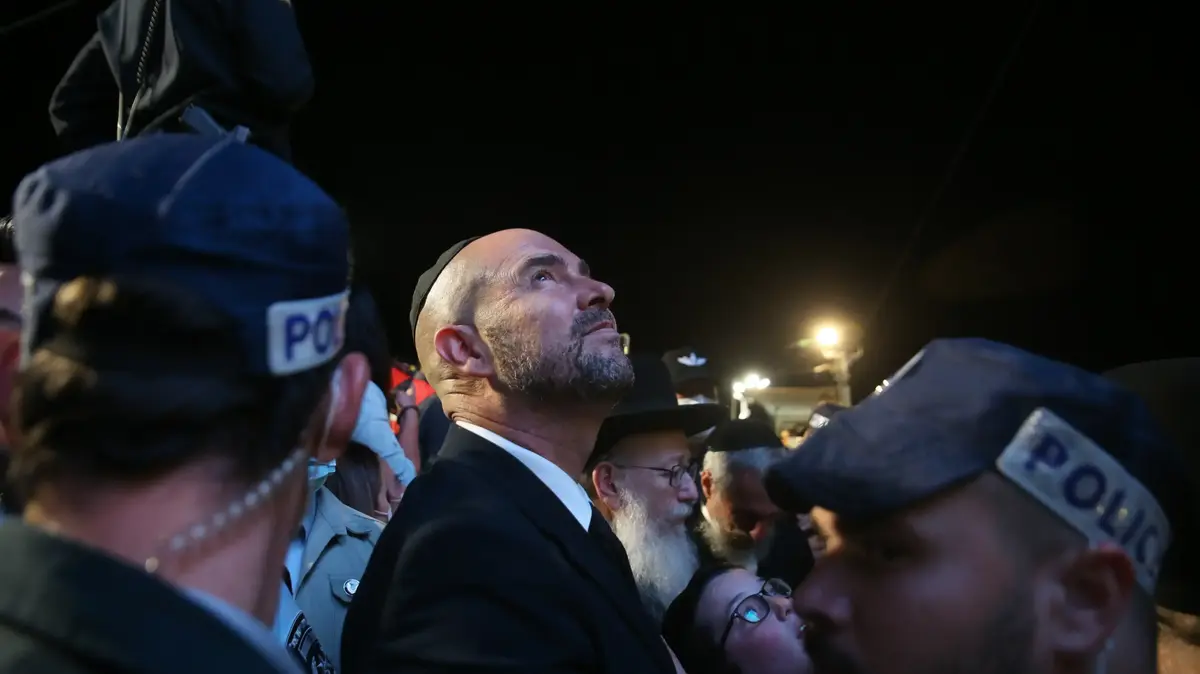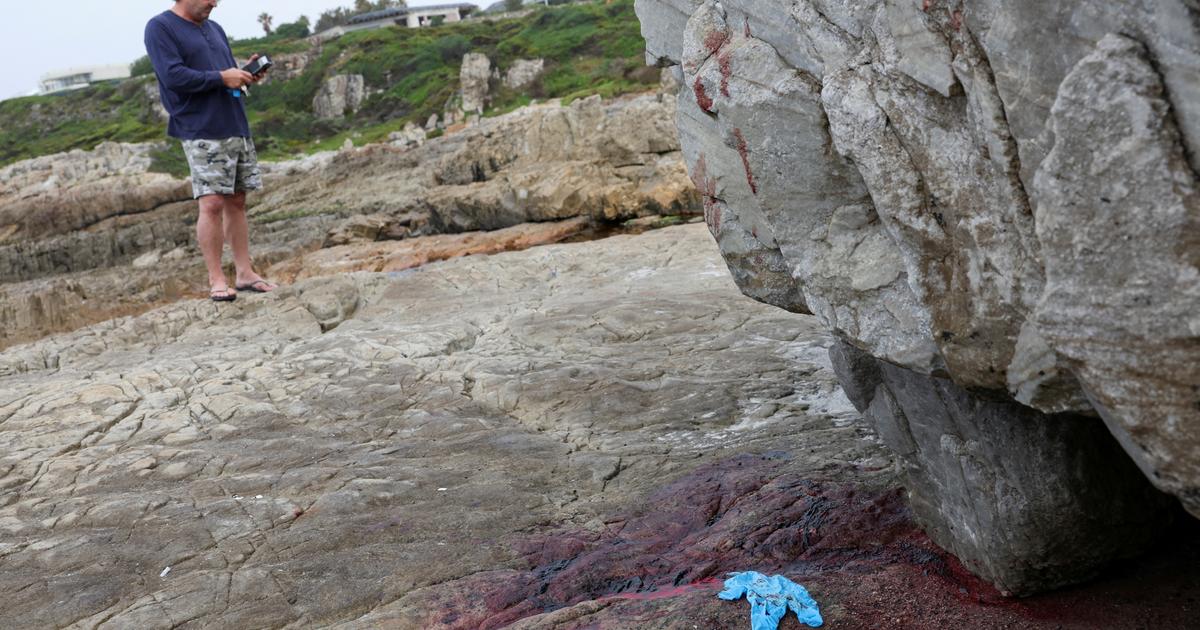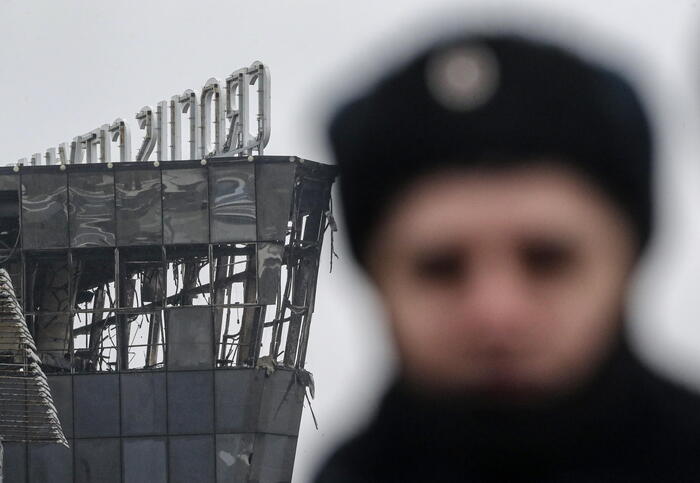Enlarge image
Cetin Gültekin, brother of Gökhan Gültekin, one of the victims of the racist attack in Hanau
Photo: Arne Dedert / dpa
With a vigil in front of the Hessian state parliament, an initiative has drawn attention to the concerns of the survivors of the racist attack in Hanau.
The background to this was the start of the public meetings of a parliamentary committee of inquiry in Wiesbaden on Friday.
"The vigil stands for complete clarification and consequences," said the initiative's spokesman, Hagen Kopp.
The 43-year-old Tobias R. murdered nine people for racist motives in Hanau on February 19, 2020, and then presumably shot his mother and himself. The "February 19 Hanau Initiative" calls for a critical reappraisal, including the weapons permits for the assassin, who was a marksman, as well as the unavailability of the police emergency number 110 in Hanau on the night of the crime.
In front of the state parliament, the initiative presented a total of ten detailed questions on posters and signs which, from the point of view of the initiative, should be clarified in the committee of inquiry.
For example, the initiative wants to know what the authorities knew about the perpetrator and his father and how this information was handled.
"The origin of the problem is racism"
In the committee, relatives of the victims first came to speak as witnesses.
When the brother of one of the victims of the attack finished his report, it was very quiet for several minutes in the room where the investigative committee of the Hessian state parliament met.
Hayrettin Saraçoglu had previously described in detail as a witness how tissue samples from his dead brother Fatih were given to him after the racist act on February 19, 2020.
After the autopsy, they stayed behind in the Frankfurt forensic medicine department.
He personally brought these remains to Turkey to be buried there.
He really felt very lonely in this situation, said Saraçoglu, whose statements are being translated by an interpreter.
Saraçoglu is one of three survivors the committee heard as witnesses at the start of its public sessions on Friday.
He found out about his brother's death from his landlady, he said.
He received support from a lawyer and sought psychological help on his own.
"I would have liked someone from the authorities to point the way and let us know," he said.
"As a result of the attack, I not only lost my beloved brother, my entire existence has been destroyed." It is good that the relatives can now speak publicly in front of the committee.
It is about a problem that affects all of Germany.
"The source of the problem is racism."
Fatih Saraçoglu's partner, Diana Sokoli, who was also heard as a witness, made it clear that she would have wished for one-stop care after the attack. To this day, she has not come to terms with the fact that her partner was murdered - on the contrary: the more time goes by, the more she becomes aware of what has happened.
The cousin of the victim of the attack, Kaloyan Velkov, previously described via an interpreter that she was largely on her own after the crime.
The police only discovered her cousin, who was like a brother to her, about 25 to 30 minutes after arriving at the scene, according to Vaska Zladeva.
The relatives were left to wait for hours in front of the building and later in a hall without giving them any information or looking after them personally.
The waiting relatives had "cried and cried".
It was only around 6:30 a.m. that the names of the victims of the attack were read from a list.
"We had to go through there alone"
She and his mother were not allowed to see his body until five to six days later and after a DNA comparison - even though he had an identity card, health insurance and bank card with him. It was only then that they were offered psychological help, but after they had held out for five or six days, she declined. "We had to go through it alone." The autopsy was carried out without her consent. She herself felt guilty that she had once suggested to her cousin to come to Germany, she thought it was a good country, said Zladeva.
The chairwoman of the SPD in the investigative committee, Heike Hofmann, spoke of moving witness statements that had shaken up and showed how deeply the trust in the state and its institutions among the bereaved had been shaken.
CDU chairman Jörg Michael Müller emphasized that Hesse's Prime Minister Volker Bouffier, Interior Minister Peter Beuth (both CDU) and the entire black-green government coalition had promised to carry out the investigation comprehensively.
For FDP chairman Jörg-Uwe Hahn, the surveys showed that the relatives had not been looked after in a targeted manner.
wit / dpa














